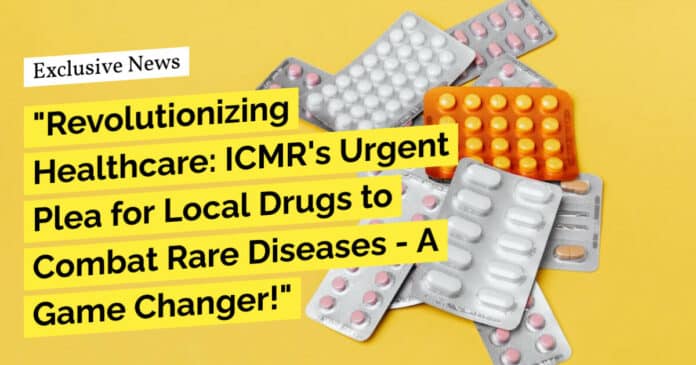
ICMR’s Urgent Plea For Local Drugs – Developing Local Drugs for Rare Diseases: ICMR’s Call to Action
In a move aimed at reducing medication costs and improving accessibility for Indian patients, the Indian Council of Medical Research (ICMR) is urging domestic pharmaceutical and biotechnology companies to focus on developing treatments for rare genetic disorders. Let’s delve deeper into this significant initiative by ICMR.
Understanding Rare Diseases and the Need for Localized Treatments
Rare diseases, as defined by the World Health Organization, are health conditions with low prevalence, affecting a small segment of the population. Despite their rarity, these conditions collectively impact a significant percentage of individuals in any given country. In India, estimates suggest a substantial number of rare disease cases, with a notable lack of available therapies for many of these conditions.
Challenges in Accessing Treatment for Rare Diseases
The current scenario indicates that treatments for rare diseases are often imported and come with exorbitant price tags, rendering them unattainable for a vast majority of Indian patients. Many individuals rely on patient-assistance programs by foreign pharmaceutical companies or resort to crowdfunding in a bid to access these crucial medications.
ICMR’s Role in Facilitating Drug Development for Rare Diseases
Recognizing
the pressing need for cost-effective therapies for rare genetic disorders, ICMR is extending its support to domestic companies in various stages of drug development. This encompasses assistance in pre-clinical and clinical research, as well as aid in navigating regulatory approvals. By collaborating with these companies, ICMR aims to catalyze research, development, commercialization, and localization of treatments for identified rare diseases.Targeted Diseases and Therapies
The list of diseases that ICMR is focusing on includes a range of rare genetic disorders such as Duchenne Muscular Dystrophy, Spinal Muscular Atrophy, Lysosomal Storage Disorders like Gaucher disease, Pompe disease, Fabry’s disease, among others. The proposed therapies span from small molecules to enzyme replacement therapy and biosimilars, offering diverse avenues for treatment innovation.
Inviting Collaboration with Pharmaceutical and Biotechnology Companies
ICMR has opened its doors to pharmaceutical and biotechnology entities already involved in rare genetic disease therapeutics or willing to venture into this critical area of healthcare. This collaboration aligns with the National Policy on Rare Diseases, underscoring the government’s commitment to fostering indigenous drug development for rare conditions.
The Need for Inclusive Criteria and Stakeholder Engagement
While the initiative has garnered positive feedback from industry stakeholders, there are calls for a more inclusive approach in the selection criteria for company support. Organizations advocating for improved access to rare disease medications emphasize the importance of engaging a broader spectrum of researchers, startups, and companies in this collaborative endeavor.
In conclusion, ICMR’s call for the development of local drugs for rare diseases marks a significant step towards enhancing healthcare accessibility and affordability for Indian patients battling these often overlooked conditions. By fostering partnerships with domestic pharmaceutical and biotechnology firms, ICMR is paving the way for innovative, cost-effective treatments tailored to address the specific needs of individuals grappling with rare genetic disorders.
– ICMR’s Urgent Plea For Local Drugs, ICMR, rare diseases, local drugs, genetic disorders, drug development, pharmaceutical companies, biotechnology, healthcare, treatment innovation, patient accessibility.





























